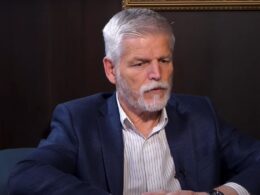The Kremlin is maintaining its effort to deny the legitimacy of the Ukrainian government as part of a broader strategy to claim that Ukraine is not a legitimate negotiating partner, while simultaneously demanding Ukrainian regime change and demilitarization, the Institute for the Study of War (ISW) reported on 7 March.
Kremlin Spokesperson Dmitry Peskov claimed on 7 April that Russian President Vladimir Putin supports the idea of a ceasefire in Ukraine but asserted that several issues "are hanging in the air." According to Peskov, these issues include what he characterized as a "lack of control" over the Ukrainian government and its alleged inability to control the actions of unspecified extremist and nationalist units that allegedly "simply do not obey" the Ukrainian government's orders.
Peskov further claimed these units are connected to "plans for the further militarization" of Ukraine. ISW notes that Peskov is promoting Putin's 28 March narrative falsely claiming that the current Ukrainian government is illegitimate and incapable of combatting neo-Nazi groups, which Putin claimed have the "actual power in their hands."
"These Kremlin statements are part of a broader effort to undermine the Ukrainian government's legitimacy and repackage Russia's long-standing demands for regime change and demilitarization in Ukraine," ISW wrote.
According to ISW, Putin and other Russian officials had previously temporarily paused promoting claims about Ukraine's alleged illegitimacy following Putin's phone call with US President Donald Trump on 12 February, but later resumed these claims on 28 March.
Meanwhile, Trump has recently expressed dissatisfaction with Putin's disparaging remarks attacking Ukrainian President Volodymyr Zelenskyy's legitimacy and expressed a willingness to impose additional sanctions on Russia if the United States and Russia are unable to "make a deal," ISW reported.





